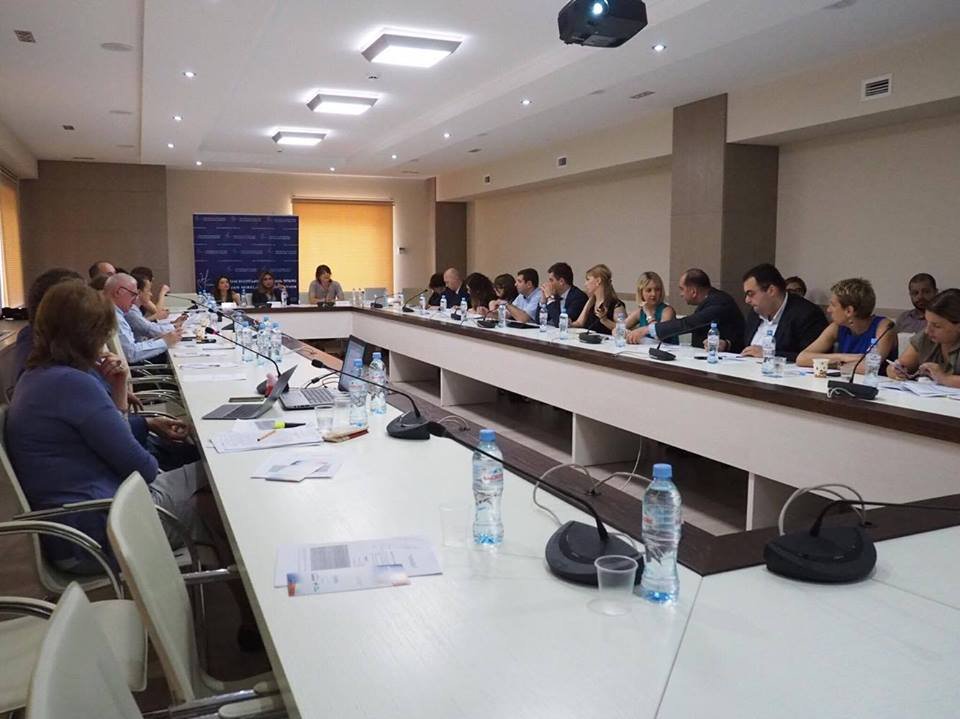On June 21, 2016, the Levan Mikeladze Foundation held the second meeting of Strategic Communication working group on the topic “How to fight the hostile propaganda”. The meeting was organized in the framework of the project - “National Convention on the EU in Georgia”. The project is carried out in partnership with the Slovak Foreign Policy Association (SFPA) and with the financial support of the Slovak Aid and Europe Foundation.
The meeting took place in the State Chancellery. It was chaired by Ms. Mariam Rakviashvili, the Deputy State Minister on European and Euro Atlantic Integration and by Ms. Lika Shavgulidze, founder and editor-in-chief of web portal Europe for Georgia.
The working group was composed with representatives of government bodies, NGOs, diplomatic missions of various states and the Delegation of the European Union. In total, there were 18 organizations represented in the session. These organizations were:
- Administration of the Government of Georgia
- British Embassy
- Delegation of the European Union to Georgia
- GLOBSEC
- Information Centre on NATO and EU
- Media Development Fund (MDF)
- National Democratic Institute (NDI)
- Office of the State Minister of Georgia on European and Euro Atlantic Integration
- Policy and Management Consulting Group
- Regional Centre for Strategic Studies (RCSS)
- Rustavi 2 TV
- Slovak Foreign Policy Association (SFPA)
- The Embassy of the Republic of Bulgaria
- The Institute for Development of Freedom of Information (IDFI)
- The Levan Mikeladze Foundation (LMF)
- The Ministry of Economy and Sustainable Development
- The Ministry of Environment and Natural Resources Protection of Georgia
- The Ministry of Regional Development and Infrastructure of Georgia
During the Working Group meeting, two sets of recommendations, one drafted by Georgian expert Ms. Elene Aladashvili and the second one prepared by Slovak expert, Mr. Radovan Branik were presented and discussed. The topic of Ms. Aladashvili’s presentation was “Improved strategic communication of EU Integration including a response mechanism to increased anti-western messages”. She discussed some general recommendations on the strategy document as well as recommendations specifically targeted at improvement of communication.
The key findings and recommendations:
General recommendations on strategy document:
- Regular Update of the Communications Strategy
- Informative and structured work plans where activities are grouped according the main objectives of the strategy
- Improved Coordination among government institutions, the EU Delegation to Georgia, EU funded programs working on EU integration, NGOs, international and donor organizations
- Disciplined messages among different government institutions working on EU integration
- Regular monitoring and evaluation of the communication activities and progress
- Staff capacity assessment and training plan
Recommendations on improved communication:
- Diversification of communication channels and increased use of new technologies in delivering key messages and information including visualization tools
- Improved and increased use of web and social media platforms
- Increased public participation in decision making process
- Special strategy to raise the awareness of Ethnic Minorities
- A response mechanism on increased anti-European messages
